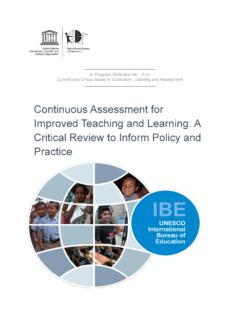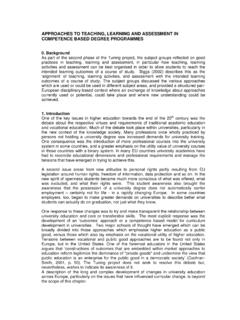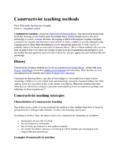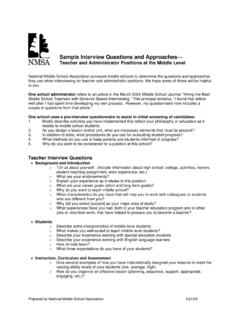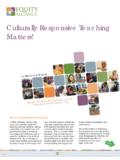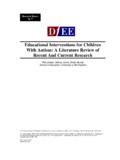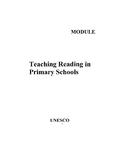Transcription of ISBE's Illinois Professional Teaching Standards
1 ISBE 23 Illinois ADMINISTRATIVE CODE 24 SUBTITLE A SUBCHAPTER b 1 TITLE 23: EDUCATION AND CULTURAL RESOURCES (Doc. 3b) SUBTITLE A: EDUCATION CHAPTER I: STATE BOARD OF EDUCATION SUBCHAPTER b: PERSONNEL PART 24 Standards FOR ALL Illinois TEACHERS Section Purpose The Illinois Professional Teaching Standards Through June 30, 2013 Language Arts Standards for All Illinois Teachers Through June 30, 2013 Technology Standards for All Illinois Teachers Through June 30, 2013 The Illinois Professional Teaching Standards Beginning July 1, 2013 AUTHORITY: Implementing Article 21 and authorized by Section of the School Code [105 ILCS 5/Art.]
2 21 and ]. SOURCE: Adopted at 26 Ill. Reg. 11847, effective July 18, 2002; amended at 34 Ill. Reg. 11505, effective July 26, 2010. ISBE 23 Illinois ADMINISTRATIVE CODE SUBTITLE A SUBCHAPTER b 2 Section Purpose This Part establishes certain Standards that shall apply to the issuance of all Illinois initial Teaching certificates. The Standards set forth in this Part shall apply both to candidates for certification and to the programs that prepare them. That is: a) approval of any preparation program or course of study in any Teaching field pursuant to the State Board s rules for Certification (23 Ill.
3 Adm. Code 25, Subpart C) shall be based on the congruence of that program s or course s content with the applicable Standards identified in this Part; and b) the examinations required for issuance of an initial Teaching certificate shall be based on the applicable Standards set forth in this Part. (Source: Amended at 34 Ill. Reg. 11505, effective July 26, 2010) ISBE 23 Illinois ADMINISTRATIVE CODE SUBTITLE A SUBCHAPTER b 3 Section The Illinois Professional Teaching Standards Through June 30, 2013 Beginning July 1, 2013, the provisions of this Section are replaced by Section of this Part as the minimum requirements both for the approval of any teacher preparation program or course of study in any Teaching field pursuant to the State Board s rules for Certification (23 Ill.
4 Adm. Code C) and the basis of the examinations required for issuance of an initial Teaching certificate. Further limitations on institutions submitting applications for approval of new teacher preparation programs or courses of study are described in Section of this Part. a) Content Knowledge - The competent teacher understands the central concepts, methods of inquiry, and structures of disciplines and creates learning experiences that make the content meaningful to all students. 1) Knowledge Indicators The competent teacher: A) Understands major concepts, assumptions, debates, principles, and theories that are central to the disciplines in which certification is sought. B) Understands the processes of inquiry central to the discipline. C) Understands how students conceptual frameworks and their misconceptions for an area of knowledge can influence their learning.
5 D) Understands the relationship of knowledge within the discipline to other content areas and to life and career applications. E) Understands how a student s disability affects processes of inquiry and influences patterns of learning. 2) Performance Indicators The competent teacher: A) Evaluates Teaching resources and curriculum materials for their comprehensiveness, accuracy, and usefulness for representing particular ideas and concepts. B) Uses differing viewpoints, theories, ways of knowing and methods of inquiry in Teaching subject matter concepts. ISBE 23 Illinois ADMINISTRATIVE CODE SUBTITLE A SUBCHAPTER b 4 C) Engages students in generating and testing knowledge according to the process of inquiry and Standards of evidence of the discipline.
6 D) Designs learning experiences to promote student skills in the use of technologies appropriate to the discipline. E) Anticipates and adjusts for common misunderstandings of the disciplines that impede learning. F) Uses a variety of explanations and multiple representations of concepts that capture key ideas to help students develop conceptual understanding. G) Facilitates learning experiences that make connections to other content areas and to life and career experiences. H) Designs learning experiences and utilizes adaptive devices/technology to provide access to general curricular content to individuals with disabilities. b) Human Development and Learning The competent teacher understands how individuals grow, develop, and learn and provides learning opportunities that support the intellectual, social, and personal development of all students.
7 1) Knowledge Indicators The competent teacher: A) Understands how students construct knowledge, acquire skills, and develop habits of mind. B) Understands that students physical, social, emotional, ethical, and cognitive development influences learning. C) Understands human development, learning theory, neural science, and the ranges of individual variation within each domain. D) Understands that differences in approaches to learning and performance interact with development. E) Understands how to include student development factors when making instructional decisions. ISBE 23 Illinois ADMINISTRATIVE CODE SUBTITLE A SUBCHAPTER b 5 F) Knows the impact of cognitive, emotional, physical, and sensory disabilities on learning and communication processes.
8 2) Performance Indicators The competent teacher: A) Analyzes individual and group performance in order to design instruction that meets learners current needs in the cognitive, social, emotional, ethical, and physical domains at the appropriate level of development. B) Stimulates student reflection on prior knowledge and links new ideas to already familiar ideas and experiences. C) Introduces concepts and principles at different levels of complexity so that they are meaningful to students at varying levels of development and to students with diverse learning needs. c) Diversity The competent teacher understands how students differ in their approaches to learning and creates instructional opportunities that are adapted to diverse learners. 1) Knowledge Indicators The competent teacher: A) Understands the areas of exceptionality in learning as defined in the Individuals with Disabilities Education Act (IDEA) and the State Board s rules for Special Education (23 Ill.
9 Adm. Code 226). B) Understands the process of second language acquisition and strategies to support the learning of students whose first language is not English. C) Understands how students learning is influenced by individual experiences, talents, and prior learning, as well as language, culture, family, and community values. D) Understands and identifies differences in approaches to learning and performance, including different learning styles, multiple intelligences, and performance modes. E) Understands cultural and community diversity through a well-grounded framework and understands how to learn about and ISBE 23 Illinois ADMINISTRATIVE CODE SUBTITLE A SUBCHAPTER b 6 incorporate students experiences, cultures, and community resources into instruction.
10 F) Understands personal cultural perspectives and biases and their effects on one s Teaching . 2) Performance Indicators The competent teacher: A) Facilitates a learning community in which individual differences are respected. B) Makes appropriate provisions (in terms of time and circumstances for work, tasks assigned, communication, and response modes) for individual students who have particular learning differences or needs. C) Uses information about students families, cultures, and communities as a basis for connecting instruction to students experiences. D) Uses cultural diversity and individual student experiences to enrich instruction. E) Uses a wide range of instructional strategies and technologies to meet and enhance diverse student needs. F) Identifies and designs instruction appropriate to students stages of development, learning styles, strengths and needs.
